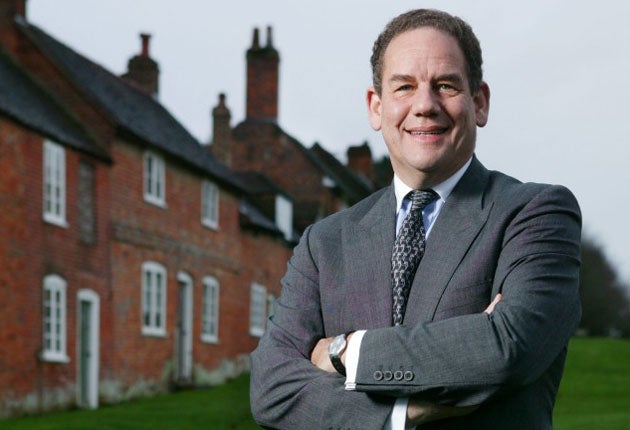Bad service and grumpy Britons put tourism jobs at risk
Tourism chief condemns high prices and shoddy service that jeopardise up to 50,000 jobs in hotels and restaurants

Shoddy service and high prices are putting foreign visitors off visiting the UK, which is threatening thousands of jobs during the recession, the Government's tourism boss says today.
In an interview with The Independent, Christopher Rodrigues, chairman of VisitBritain, warned that 50,000 jobs could be lost this year as a result of the recession and poor service would be responsible for some of them. Indicating that the likes of Basil Fawlty were still patrolling some hotel check-in desks, Mr Rodrigues, who represents the tourism boards for England, Scotland and Wales, said some hotels were still blighted by grumpiness and a failure to offer basic services such as fresh soap.
"We've had a period in which people could get away with not being of the highest quality. We're now in an environment where you have to do quality. Poor value for money and poor service costs jobs and will cost more jobs in a recession," he said.
"Threadbare towels, a previously owned bar of soap and a grumpy person who says: 'We don't do breakfast before 8am and we don't do it after 8.12am' – you don't get a lot of happy customers.
"Some people are born to be in service industries and some people are born to be service industry customers," he added. Mr Rodrigues was speaking ahead of the Prime Minister's launch today of a £6m campaign aimed at highlighting how cheap the collapse of sterling has made Britain for foreign tourists. At the International Convention Centre in Liverpool, Gordon Brown will stress how being 2008 European Capital of Culture has revitalised Liverpool and how tourism can similarly revitalise the national economy.
Thirty-two million people visit Britain each year, generating £114bn in 2008. But many foreign and domestic visitors often complain that British tourism firms fail to emulate the "service with a smile" and courtesy found in the Mediterranean, America, and the Far East – and the problem has been picked up in research by Visit Britain.
This week Which?, the consumer group, found poor standards of hygiene at budget hotels during an undercover investigation. Among the problems were unclean lavatories, blood-stained sheets and a loose fingernail, though some of the rooms were spotless.
Acknowledging that the quality of some accommodation could be better, Mr Rodrigues said: "We need to improve service levels and attention. When you ask people what's memorable it doesn't have to be five-star.
"Five-star can be memorable but actually there are an awful lot of memorable hotels that are bed and breakfasts – a really nice English breakfast served with a smile and a comfortable bed, where there's a clean bar of soap and the towels are fluffy – that can be all it takes," he said.
He estimated that tourism earnings would fall by £4bn, costing between 30,000 and 50,000 of 2.6 million jobs – gloomier than an earlier report from Deloitte that forecast 100,000 job losses over three years.
In an attempt to ease the fall in booking, VisitBritain's "value campaign" will seek to shrug off the UK's reputation in North America and continental Europe for being expensive. The fall in the pound has made Britain 23 per cent cheaper for eurozone visitors, 26 per cent cheaper for Americans and 40 per cent cheaper for the Japanese. Highlighting the change, the slogan will be: "There's never been a better time to explore Britain."
Mr Rodrigues, who took over as VisitBritain chairman in January 2007, said the UK offered fantastic arts, sport, heritage and culture. But research showed that foreign tourists disliked the expense and the lack of warmth in the welcome.
Historically, British five-star hotels had "not been cheap," naming the Four Seasons or Mandarin Oriental as charging £700 a night, which was "expensive even by New York standards".
On service, he said: "All you have to be is professional and there are some great people doing that but this is a market where Warren Buffet said: 'When the tide goes out you will see who's been swimming without their underwear.' It would probably be true to say of the tourism industry that as the tide goes out you recognise those people who know they are doing well with service and those who aren't.
"There will be one or two people who fall by the wayside because their product isn't up to snuff, they're greedy on price, the bank doesn't support them and there's no marketing."
Saying that VisitBritain had generated worldwide annual PR worth £3.5bn on a budget of £45m, Mr Rodrigues called for the Government to raise funding for his "value campaign" to £10m or more. The French had announced €1bn (£900m) investment in tourism and the Spanish €750m investment in tourism "and we're debating whether we put £6.5m in," he said.
Miles Quest, of the British Hospitality Association, which represents more than 1,500 hotels, said that Mr Rodrigues was right about service. "Hotels do need to provide a welcome and sometimes you don't get it."
A spokeswoman for Mandarin Oriental, however, denied that its room rates were excessive, saying they were "driven by market conditions". The spokeswoman added: "We are an award-winning hotel that provides outstanding legendary service."
Join our commenting forum
Join thought-provoking conversations, follow other Independent readers and see their replies
Comments
Bookmark popover
Removed from bookmarks